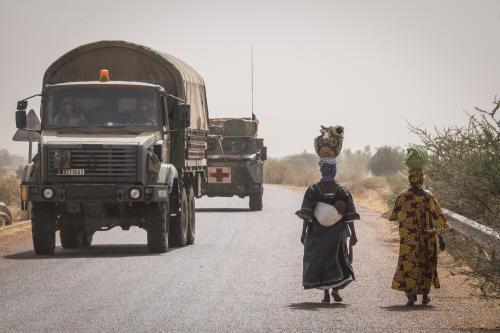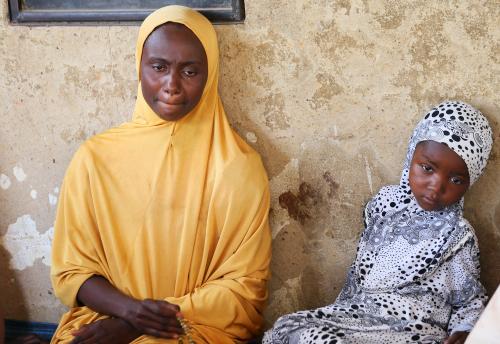The 9/11 attacks triggered a contentious, and so far unresolved, debate about the causes of terrorism. Two main views have emerged. In the first camp, those in favour of the “root causes” approach argue that anti-terrorism should primarily target social and economic development in the Islamic world. Their rationale is compelling: poverty and ignorance create an ideal breeding ground for terrorist recruitment. In the second camp, an equally vocal group of analysts maintain that socio-economic deprivation has no positive correlation, let alone causality, with terrorism. Most terrorists, they argue, are neither poor nor uneducated. To illustrate this point, they often point out that if poverty and ignorance were root causes most terrorists would come from sub-Saharan Africa. Such logic defines terrorism almost exclusively as a “security threat” with no discernible socio-economic rationale. Fighting terrorism is conceptualised accordingly: with an exclusive focus on state actors, intelligence gathering, law enforcement, and military action.
The challenge awaiting the second term of the Bush administration is to find a balanced, middle-of-the-road approach between these two polarised views. So far, the Bush administration seems to have opted for the second camp’s viewpoint rather than the first. The invasion of Iraq, and current pressures on Iran and Syria, illustrate a single-minded focus on state actors. Commonly known as the “neo-conservatives”, an influential group within the Bush administration, has for the last four years strongly supported the exertion of political and military pressure on state sponsors of terrorism. This, they believe, sent the strongest message against terrorists in the only language that they understand.
Despite such focus on terrorist states, it would be misleading to argue that the Bush administration has been oblivious to the root causes of terrorism. There are two areas where the Bush administration has been trying hard to tackle the root causes: foreign aid and the push for democratisation. The problem is that much more needs to be done in both areas.
Let’s start with foreign aid. Two years ago the Bush administration heralded with great fanfare the Millennium Challenge Account (MCA). This new initiative was supposed to triple US foreign assistance to the developing and underdeveloped world. Yet, three problems have plagued this worthy goal. First, the House of Representatives trimmed the planned increase in US foreign aid. Second, it became clear that a large number of the poorest countries would not qualify for the MCA because of a strict, merit-based selections process. And finally the MCA has by and large failed to take off due to administrative problems.
The picture on the democratisation front is slightly better. Last summer the United States launched the Broader Middle East and North Africa (BMENA) initiative, as a multilateral G-8 effort in cooperation with regional countries. The BMENA initiative has produced an impressive “to do” list, ranging from education reform to strengthening civil society. Yet, once again the problem turned out to be feasibility and credibility. In its call for reforms, the BMENA is unable to spell out the incentives it offers to regional autocrats. The reason is simple: there is simply no special budget assigned for the ambitious BMENA blueprint. It is as if the Marshall Plan offered good advice but no money.
Under such circumstances, the democratisation rhetoric is bereft of credibility and realism. Eloquent and timely as it is, the pro-freedom discourse of President Bush needs to be matched by deeds. A good place to start would be to come up with a much more generous budget assigned for democratisation. At a time when the United States is running record fiscal and trade deficits, the only way of achieving this will be to convince lawmakers that democratisation, economic development and US national security are closely linked. This is why the root causes of terrorism need to be taken much more seriously in the second term of the Bush administration. Yet, throwing more American money will not solve the problem. This has to become a truly multilateral effort combined with a strict monitoring system
The best way of assuring multilateralism is to match American funds with European and Japanese contributions. The EU is already quite generous in financing its Barcelona Process. It has spent 3 billion euros since 1995. Japan also spends more than the United States on foreign aid relative to its national income. The trick is to combine and coordinate these resources in an efficient way. This can only be done if American, European and Japanese contributions are pooled in a new institution, the Democracy Assistance Bank (DAB), administered by the World Bank and its private sector development branch the International Finance Corporation (IFC).
Such a multilateral policy would not only avoid a “Made in the USA” stigma effect, which would otherwise defeat the whole effort, but also channel the resources where they are most needed: technical education and private sector development. The democratisation money needs to support the entrepreneurial middle class, not the bloated bureaucracies. The World Bank and particularly the IFC are best placed to pursue assistance policies in the framework of public-private-partnership programmes. More importantly, both institutions come from a culture where financing is conditional on performance
If the United States is really serious about democratisation, this is no time for complacency and hubris. Tackling the root causes of terrorism with democratisation will require much more than a few positive political developments in the Middle East.



Commentary
Op-edTaking Terrorism and Democratisation Seriously
March 11, 2005